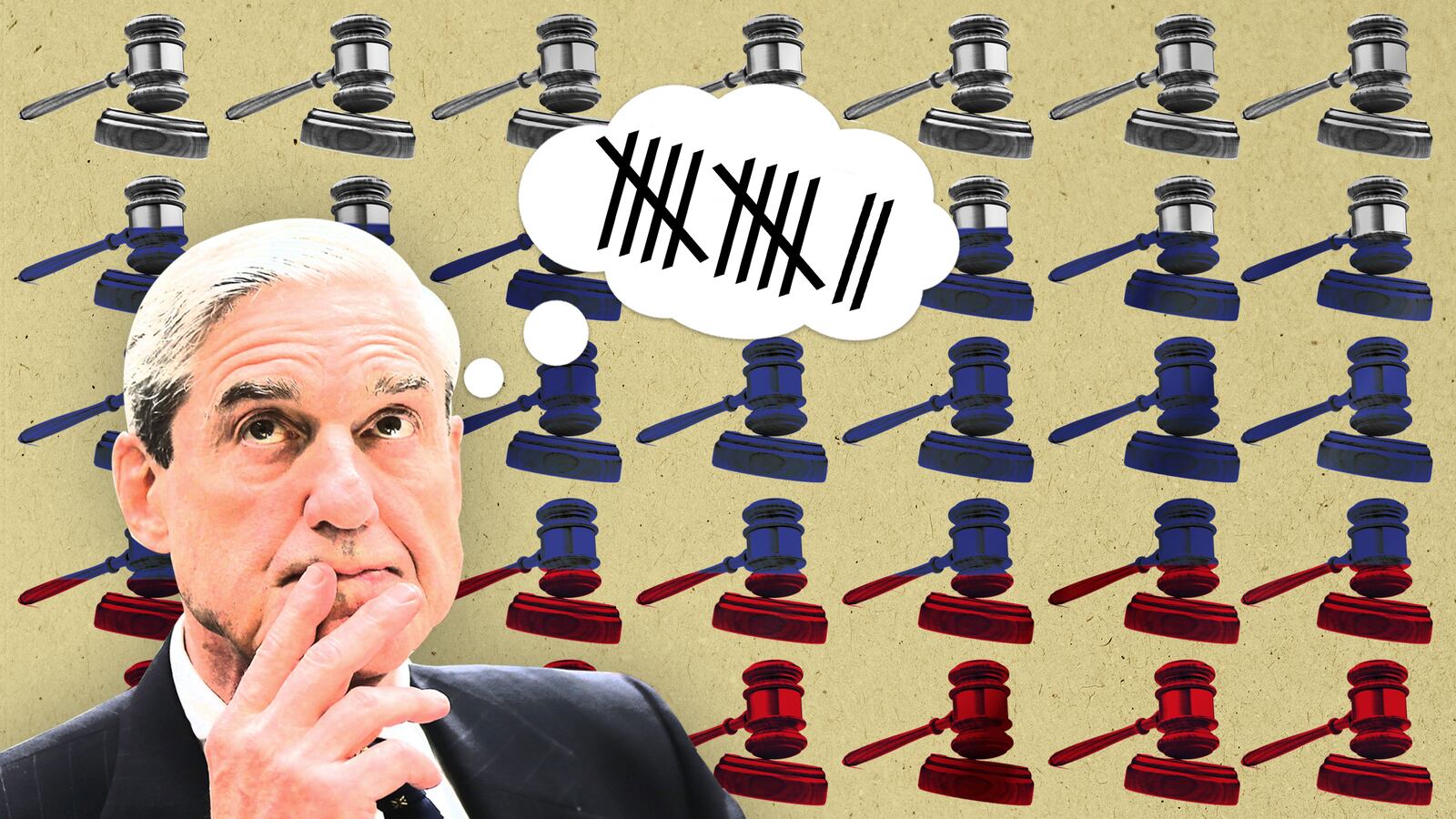Deputy Attorney General Rod Rosenstein on Friday announced that 12 Russian intelligence officers have been indicted by Special Counsel Robert Mueller in the ongoing probe of alleged collusion between Russia and the Trump campaign.
The officers, members of the Russian foreign-intelligence agency GRU, were all named as having hacked the Democratic Congressional Campaign Committee, the Democratic National Committee, and the Hillary Clinton campaign.
According to a press release, alleged hackers Viktor Borisovich Netyksho, Boris Alekseyevich Antonov, Dmitriy Sergeyevich Badin, Ivan Sergeyevich Yermakov, Aleksey Viktorovich Lukashev, Sergey Aleksandrovich Morgachev, Nikolay Yuryevich Kozachek, Pavel Vyacheslavovich Yershov, Artem Andreyevich Malyshev, Aleksandr Vladimirovich Osadchuk, Aleksey Aleksandrovich Potemkin, and Anatoliy Sergeyevich Kovalev all worked for GRU's Unit 26165 and Unit 74455.
During a press conference, Rosenstein took a swipe at media personalities who have speculated about the Mueller probe.
“I want to caution you: People who speculate about federal investigations usually do not know all of the relevant facts,” he said. “We do not try cases on television or in congressional hearings. Most anonymous leaks are not from the government officials who are actually conducting these investigations.”
He also cautioned against partisanship.
“When we confront foreign interference in American elections, it’s important for us to avoid thinking politically as Republicans or Democrats, and instead to think patriotically as Americans. Our response must not depend on which side was victimized.”
Rosenstein said he briefed President Donald Trump about the allegations earlier this week. He would not give further detail on the nature of that conversation.
In the indictment, prosecutors outlined how the hackers started hacking the email accounts of the Clinton campaign in March of 2016 and proceeded to hack the “computer networks” of the DCCC and DNC the following month. The officials allegedly used a method called “spear phishing” and malware to infiltrate the email and computer networks.
They then “plann[ed] the release” of the information and started disseminating the hacked materials in June using “fictitious online personas” DCLeaks and Guccifer 2.0, as well as through an unnamed website that “had previously posted stolen documents.” Prosecutors wrote that these operations continued through November 2016.
The officers were allegedly targeting specific individuals and information while selecting which files to steal. One official allegedly searched the terms “trump,” “cruz” and “hillary” while searching through a DCCC computer. Another copied a file from a DCCC computer called “Benghazi Investigations.”
During the presser, Rosenstein described how one unit collected information while another was responsible for disseminating the stolen information. He also said that the officers took on the personas of hackers DCLeaks and Guccifer 2.0.
President Trump’s longtime confidant Roger Stone has admitted to having communications with Guccifer 2.0, and The Daily Beast reported in March that the “hacker” was actually an agent of the Russians. In a statement to The Daily Beast, Stone on Friday dismissed any connection to the indicted hackers.
The indictment also describes how the officials, posing as Guccifer 2.0, had “communicated with U.S. persons about the release of stolen documents,” including “regular contact with senior members of the presidential campaign of Donald J. Trump.” Guccifer 2.0 allegedly wrote messages asking how he could be of help to them and if they found “anything interesting” in the documents posted.
CNN reported that prosecutors from Mueller's office and the Justice Department's National Security Division gave a grand jury indictment to a D.C. federal magistrate judge on Thursday morning.
This latest Russia-related indictment comes just one day before President Trump is set to meet with Russian President Vladimir Putin in Helsinki for their first official summit.







